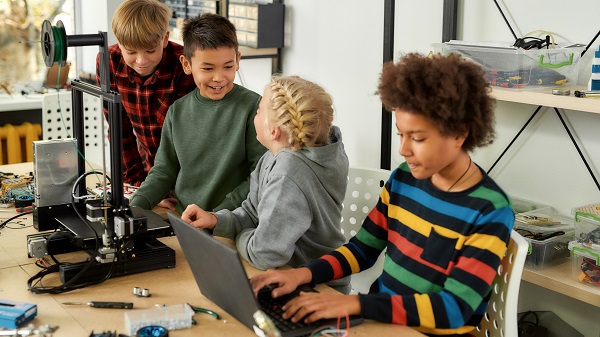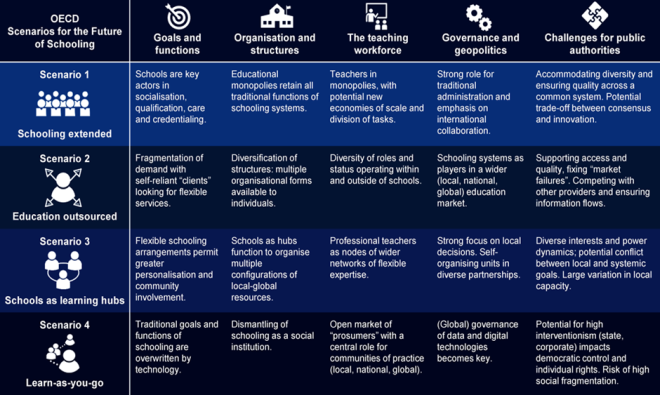Future trends in education

Education as a key to a sustainable future
During the 5th European Education Summit (2022), the panellists shared their views on future-proofing education. The future will be increasingly digital, which means that education must provide the necessary skills and address the opportunities and risks that come with it. Laboratories for experimental learning, cloud technologies and blended learning will be part of everyday teaching and learning. The future will also be human-centred, making transversal competences imperative. Multilingualism and multiculturality should be embedded into school systems. Moreover, education is key to creating a sustainable future, e.g. through cross-curricular and multi-stakeholder cooperation.
Towards general and individual wellbeing
OECD’s Learning Compass 2030 is a living framework for an aspirational vision of education, suggesting core knowledge, skills, attitudes and values needed in 2030. The compass is based on supporting student agency/co-agency and the development of three transformative competences: creating new value (a person’s ability to innovate and act entrepreneurially); taking responsibility; and reconciling tensions and dilemmas. Learning takes place through an iterative Anticipation-Action-Reflection (AAR) cycle.
10 trends shaping education as we know it
The European Commission report (2019) has also highlighted how digitalisation will impact education profoundly (e.g. through artificial intelligence), making digital skills and literacy essential. Schools too will need to become more interdisciplinary and open to offering more customised learning experiences. As for individual learning paths, early age learning experiences will become more crucial, lifelong learning will become a necessity, and the transition from school to work life will no longer be guaranteed, all of which demand more personalised career advice.
Four scenarios for future schooling
In another report, OECD has published four alternative scenarios for schooling. These scenarios offer a perspective to reflect on where education is pointing to, and how to adapt to the changes and be prepared to face the future.
Source: Overview: Four OECD Scenarios for the Future of Schooling
Additional information
-
Education type:School Education
-
Target audience:Head Teacher / PrincipalICT CoordinatorParent / GuardianResearcherStudent TeacherTeacherTeacher Educator
-
Target audience ISCED:Primary education (ISCED 1)Lower secondary education (ISCED 2)Upper secondary education (ISCED 3)

